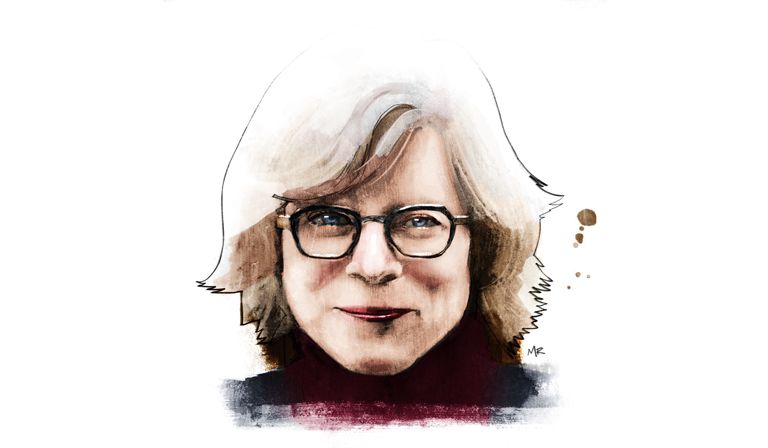What is the first news event you can recall?
The attempted assassinations of Ronald Reagan and Pope John Paul II in 1981. I have a very strong memory of going to mass to pray for the pope. Newsier things happened before then, when I should have been old enough to pay attention, but I don’t remember noticing any of them. No one in my house watched the TV news and although we had a newspaper route, I only ever read the comics. Maybe Ford pardoning Nixon entered my consciousness? I doubt it, though. Anyway, I have a useless memory.
What is the biggest problem?
Humans’ inability to stop themselves from destroying the natural world and a habitable Earth.
If you could spend a day in one city or place at one moment in history, what would that be?
The top of Mount Greylock, sitting on a bench with my mother, drinking thermoses of hot coffee and eating doughnuts, on an autumn day about five years before she died. Just for an hour. That’s all I need. A few more words with her, and to hold her hand.
Which of your ancestors or relatives are you most proud of?
My mother. I once wrote an essay about her, and it explains why. It begins, “In the trunk of her car, my mother used to keep a collapsible easel, a clutch of brushes, a little wooden case stocked with tubes of paint, and, tucked into the spare-tire well, one of my father’s old, tobacco-stained shirts, for a smock. She’d be out running errands, see something wonderful, pull over, and pop the trunk. I never knew anyone better prepared to meet with beauty.”
What have you changed your mind about?
Nearly everything but a short list would include: academic life, red onions, William Howard Taft, California and aisle seats versus window seats.
What is the last piece of music, play, novel or film that brought you to tears?
Miriam Toews’s memoir, A Truce That Is Not Peace. And that Irish ad for same-sex marriage, from 2009, where the guy knocks on every door asking permission to marry Sinéad. A student of mine showed it in class the other night and it gutted me.
What is your favourite quote?
“There was pasture enough for my imagination.” Henry David Thoreau, Walden, 1854.
Your book makes the case that “originalism”—a strong legal focus on the “original intentions” of the founding fathers—has taken hold in the US and strangled the development of the Constitution. Who gains from this and who loses?
I don’t think anyone really gains, although conservatives believe they gain from it. I think all Americans lose since it’s among the forces responsible for the erosion of democracy and the declining legitimacy of the US Constitution.
How does the rise of originalism square with the rise of Donald Trump, who is often accused of acting “unconstitutionally”?
They don’t have anything to do with one another, really. Originalism goes back to the 1950s, though it didn’t cohere until the 1970s and only came to the fore in the 1980s. Decades later, Trump, at least in his first term, appointed originalists to the federal judiciary, which made possible a consolidation of their influence on the judiciary, but they were already dominant.
Overall, is it a good or bad thing for a country to have a single written constitution? Would you ever advise that the UK follow America’s example?
Written constitutions are an ingenious invention of the 18th century and, for sure, the US Constitution has been the most influential written constitution in the world, but its influence is fast declining. Should anyone be following America’s example right now? Good lord, no.
What would people be surprised to know about you?
How much time I spend knitting.
What do you most regret?
How much time I spend knitting. Plus, that thing about how we’re destroying the planet.
Jill Lepore’s “We the People: A History of the US Constitution” is available now in hardback (John Murray, £30)












